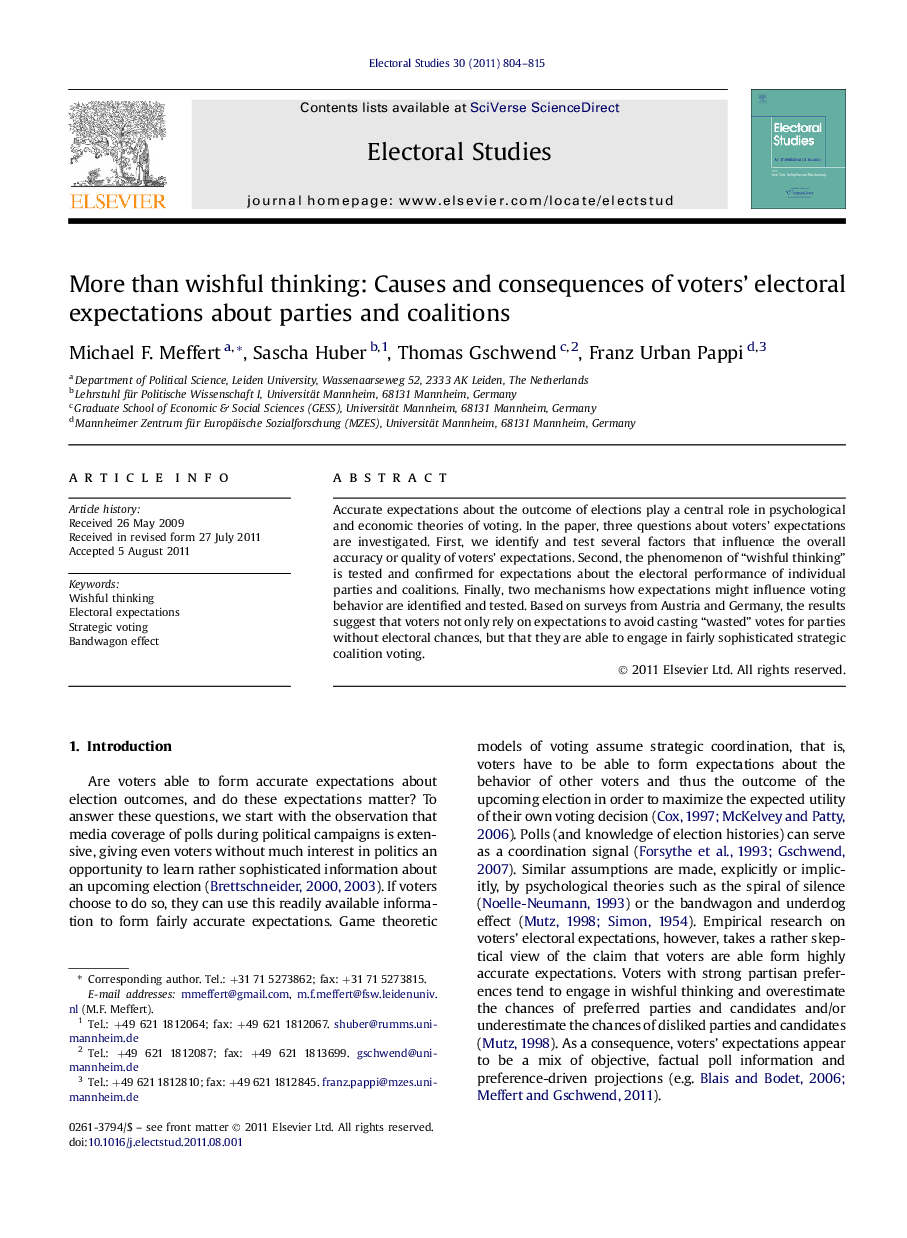| Article ID | Journal | Published Year | Pages | File Type |
|---|---|---|---|---|
| 1052274 | Electoral Studies | 2011 | 12 Pages |
Accurate expectations about the outcome of elections play a central role in psychological and economic theories of voting. In the paper, three questions about voters’ expectations are investigated. First, we identify and test several factors that influence the overall accuracy or quality of voters’ expectations. Second, the phenomenon of “wishful thinking” is tested and confirmed for expectations about the electoral performance of individual parties and coalitions. Finally, two mechanisms how expectations might influence voting behavior are identified and tested. Based on surveys from Austria and Germany, the results suggest that voters not only rely on expectations to avoid casting “wasted” votes for parties without electoral chances, but that they are able to engage in fairly sophisticated strategic coalition voting.
►Partisan preferences increase the accuracy of electoral expectations overall. ►Partisan preferences lead to wishful thinking about the chances of specific parties. ►Wishful thinking effects are replicated for electoral expectations about coalitions. ►Political knowledge and education reduce wishful thinking. ►Electoral expectations lead to strategic vote decisions and a bandwagon effect.
